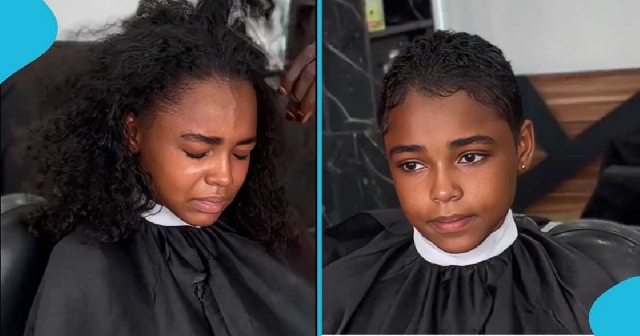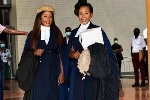Hair, discipline, and identity: The debate over SHS haircut rules in Ghana
 SHS haird cut
SHS haird cut
The debate over haircuts in Ghana’s senior high schools has once again ignited national conversation yet this time, it is about where to draw the line between discipline and self-expression.
Supporters see the haircut rule as a tool for order and moral upbringing.
Critics, however, view it as a relic of colonial conformity that undermines individuality and modern educational values.
The issue resurfaced on Oman Ghana Nkosuo, a talk show on CTV, where economist and policy analyst Roger T.D. Mills defended the haircut policy, calling it “a step in the right direction.”
He argued that discipline is the foundation of education and that schools, as institutions of learning, must maintain standards that shape the character of students.
“This is Ghana, and students must follow the rules set by their schools,” Mills said. “The school is a place to study, not to showcase fashion.”
He noted that adolescents are impressionable and susceptible to external influences, warning that loosening rules on grooming could lead to indiscipline and misplaced priorities.
To him, haircut policies are not punitive but protective, a framework to guide young people during their formative years.
Mills also dismissed claims that such policies discriminate against students, insisting that they are designed to instil respect, order, and focus.
“We are products of our environment,” he said. “Some of these rules shaped us, and they can do the same for today’s students.”
Yet, for many Ghanaians, especially progressives and education reform advocates, this line of reasoning belongs to another era.
One critic described the Education Ministry’s support for haircut enforcement as “utterly misguided,” arguing that it reflects a deeper confusion between discipline and conformity.
“To equate intelligence with the length of one’s hair defies logic, reason, and any genuine understanding of education,” the critic said.
“True education should expand minds, not police appearances or perpetuate stereotypes.”
According to opponents, the insistence on uniform haircuts is rooted in colonial-era discipline models that prioritised obedience over creativity.
They argue that modern education should nurture critical thinking, individuality, and diversity, which are values that are stifled when students are forced into rigid moulds of appearance.
Some parents and rights advocates also question the consistency of the rule, pointing out that children in international or private schools, including those of expatriates, are often exempted.
They see this as evidence of double standards within Ghana’s education system.
“If children of diplomats and foreign nationals can wear their hair freely, why must Ghanaian students be punished for doing the same?” asked one parent during a public education forum in Accra.
Educational psychologists have also weighed in, saying that while grooming standards can promote discipline, they should not overshadow the broader goal of education, intellectual and emotional growth.
Dr. Anita Koomson, an educational consultant, believes that the issue demands a middle ground. “Uniformity can create focus, but it should not come at the expense of individuality,” she said.
“Schools can encourage neatness and responsibility without enforcing a one-size-fits-all haircut policy.”
For now, the debate remains deeply polarising. To some, the haircut rule is a harmless, even necessary, tradition that fosters respect and unity.
To others, it is a symbol of outdated control, one that limits personal freedom and creativity in a modern democracy.
In the end, the question remains: should education in Ghana continue to prioritise conformity as a measure of discipline, or embrace the evolving idea that respect and intelligence can grow even under a head full of hair?
Trending Features

British-Ghanaian lawyer Bianca Akweley Clinton marks 20 years at the Bar
19:02
The death of critical thinking and the rise of collective stupidity as an existential threat
08:32
Cybersecurity and Constitutional Order: Why ILAPI calls for redress before Ghana’s Cybersecurity (Amendment) Bill becomes law
23:32
Cedi at 60: What you need to know about Ghana’s legal tender
15:04
From shells to screens: Experience 60 years of the Ghana cedi in augmented reality
10:38
Hair, discipline, and identity: The debate over SHS haircut rules in Ghana
10:07
Beyond A and B schools: Addressing educational inequality through political reform
18:30
Why V. L. K. Djokoto could be Ghana’s future
17:37
Fighting a silent killer: How vitamin C could transform triple-negative breast cancer outcomes for young African women
15:38
Technology meets tradition: How smart health is trying to deal with diabetes
11:51




